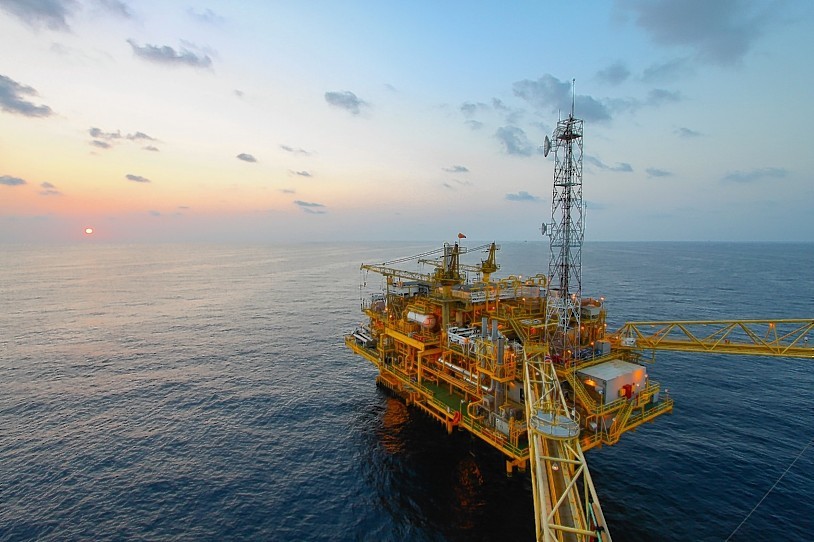
Scotland’s economy has “lagged behind” that of other advanced small nations, according to a report which put the country bottom of the list for a key performance measure.
Economics expert David Skilling estimated that Scotland’s GDP per capita to be 39,337 US dollars (£29,282) in 2017 – slightly lower than that of the UK and below that in 13 other comparator countries.
The slowdown in the oil and gas sector has hit GDP growth in Scotland, the report said, while adding that being in the UK – which has “under-performed the rest of Europe by a significant margin over the past few years” – had also acted as a “drag on performance”.
The economic adviser looked at the performance of countries including Ireland, New Zealand, Norway, Sweden, Finland, Hong Kong and Switzerland – where GDP per capita was measured at 80,591 dollars (£60,000), more than double the Scottish figure.
In a new report for the think-tank Reform Scotland, published with the Scottish Policy Foundation, Dr Skilling said: “Scotland’s economic performance has lagged that of other small advanced economies.”
He added: “There is scope to strengthen Scotland’s competitive position using its set of devolved powers through deliberate policy action.”
Looking at successful small economies, the report concluded there was “no single specific policy model” followed by all.
However, it stressed the importance of having a “disciplined approach to fiscal policy”, along with an “efficient, competitive business environment that allows for firms to expand”.
GDP growth in Scotland has averaged 1.4% since 2000, the report said, putting the country “near the bottom of the small advanced economies group”.
It stated: “There has been a consistent gap between Scotland’s GDP growth rates and that of other small advanced economies.
“This has led to a steady divergence in Scotland’s per capita income from that of other small advanced economies.”
The report went on: “Part of Scotland’s recent GDP growth weakness is due to the slowdown in the oil and gas sector (Norway has also suffered).
“Scotland’s relatively deep exposure to the rest of the UK, which has under-performed the rest of Europe by a significant margin over the past few years, is also a drag on performance.”
Dr Skilling also argued tax rates must remain in line with other small advanced economies – pointing out that in the comparator countries the top rate for personal tax has been reduced from 47% to 44% since 2000.
In Scotland, the top rate of income tax – paid by those earning £150,000 a year or more – was increased in the 2018-19 budget, making it higher than in the rest of the UK at 46p.
While spending on research and development can help improve competitiveness, the report said Scotland was “in the bottom third of the advanced economies group in terms of total R&D spending, at 1.5% of GDP in 2016”.
Reform Scotland director Chris Deerin said: “The report is not about nationalism or unionism – it is about how we in Scotland can create the conditions for greater economic growth in order to raise our standard of living and better fund our public services.
“The lessons from the paper are clear. To achieve economic success, we must ensure our tax rates are competitive, that we have a high-quality business environment and invest in human capital and innovation.”
Dr Skilling looked at largely the same small economies studied in the SNP-commissioned Sustainable Growth Commission report, which examined the economic prospects for an independent Scotland.
Former SNP MSP Andrew Wilson, who chaired the commission, said when the report was published recently that it showed “how Scotland can emulate the best-performing economies and societies in the world”.
Alison Moore, director of the Scottish Policy Foundation, said the Reform Scotland/David Skilling paper was “one of a number that we are currently funding to add to the debate around Scotland’s economy and productivity”.
She stated: “This paper is a valuable addition to the debate on our economy and we look forward to continuing to support this debate through our ongoing work.”
A Scottish Government spokeswoman said: “Scotland’s economy is strong, with output per head among the highest in the UK outside London and the south-east. We are also one of the top destinations for inward investment while Scottish productivity has grown faster than the UK’s over the past decade.
“We remain focussed on growing the Scottish economy which is why the 2018-19 Budget delivered an increase of 64% in the economy, jobs and fair work budget as part of our investment of almost £2.4 billion in enterprise and skills, the continuation of the most competitive business rates package in the UK and investments in our National Manufacturing Institute and Scottish National Investment Bank.
“But our prospects for longer-term growth are threatened by Brexit and the prospect of being taken out of a market around eight times bigger than the UK’s market alone. That is what poses the most serious risk to jobs, investment, prosperity and living standards.”
Recommended for you

